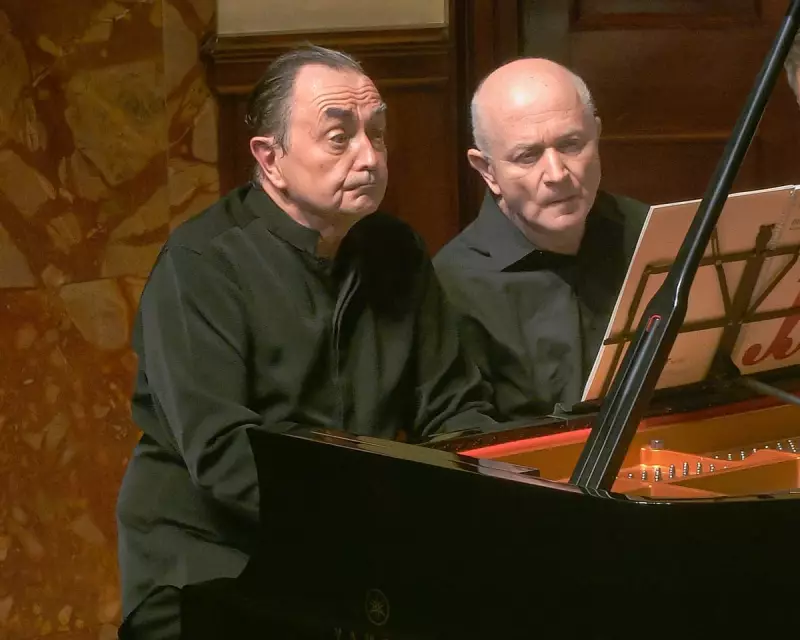
In an evening that will linger long in the memory of those fortunate enough to be present, French pianist Pierre-Laurent Aimard transformed London's Wigmore Hall into a sanctuary of musical revelation. The acclaimed virtuoso delivered a programme that was both intellectually rigorous and emotionally devastating, proving why he remains one of the most compelling interpreters of our time.
A Programme of Contrasts and Connections
The recital opened with Ravel's Valses nobles et sentimentales, where Aimard demonstrated his extraordinary ability to balance structural clarity with sensual expression. Each waltz emerged with its own distinct character, from the playful to the profoundly melancholic, all unified by the pianist's impeccable sense of timing and texture.
What followed was nothing short of revelatory. Aimard's performance of Debussy's Estampes transported the audience across continents and soundscapes. Pagodes shimmered with Eastern mystery, La soirée dans Grenade pulsed with Spanish heat, and Jardins sous la pluie cascaded with breathtaking virtuosity.
The Contemporary Masterpiece
The evening's centrepiece, George Benjamin's Shadowlines, proved to be a tour de force of contemporary composition and interpretation. This six-movement canon prelude demands extraordinary technical precision and intellectual engagement, qualities Aimard possesses in abundance.
Under his fingers, Benjamin's complex counterpoint became not just comprehensible but profoundly moving. The intricate patterns and shifting harmonies unfolded with such logical inevitability that the audience was held in rapt silence, completely absorbed in the musical argument.
Encores That Stole the Breath
The programmed works alone would have constituted an exceptional recital, but it was in the encores that Aimard truly revealed the depth of his artistry. His performance of Ravel's Oiseaux tristes was so hauntingly beautiful it seemed to suspend time itself, while Debussy's La terrasse des audiences du clair de lune floated with ethereal delicacy.
The final selection, Ravel's Alborada del gracioso, brought the evening to a spectacular conclusion. Aimard's technical command in the rapid repeated notes and complex rhythms was nothing short of miraculous, yet never at the expense of musical expression.
An Unforgettable Musical Experience
What made this recital truly exceptional was Aimard's ability to create a cohesive journey through seemingly disparate works. The connections between Ravel's refined elegance, Debussy's colouristic innovation, and Benjamin's structural complexity became increasingly apparent throughout the evening.
The capacity audience at Wigmore Hall witnessed not just a demonstration of technical prowess, but a profound exploration of what the piano can express in the hands of a true master. In an age of superficial virtuosity, Aimard reminds us that the greatest technical achievement is to make the instrument speak with emotional truth.
This was more than a concert; it was a masterclass in musical intelligence, emotional communication, and the transformative power of great art. Those present will not soon forget the magic conjured within the hallowed walls of Wigmore Hall on this remarkable evening.





